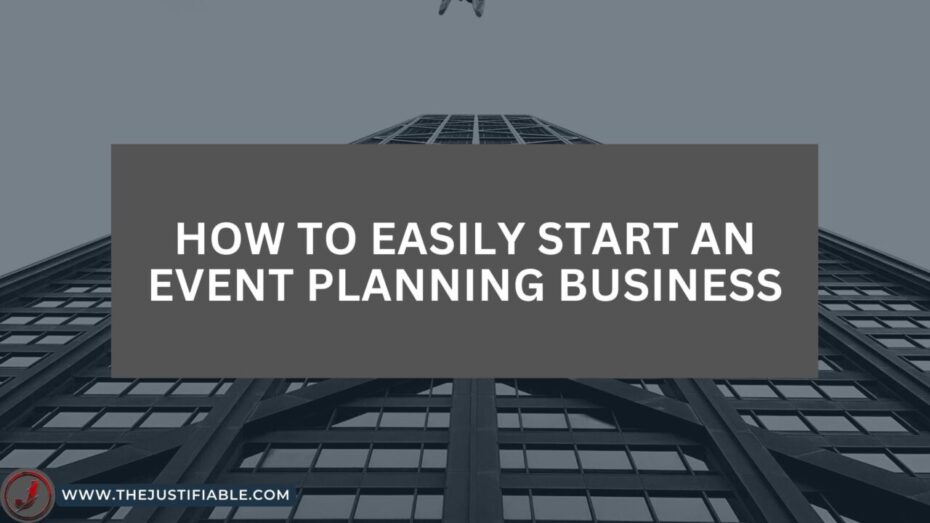Table of Contents
Event planning is an exciting and rewarding industry with numerous opportunities for those looking to start their own business. Starting an event planning business, whether you want to organize weddings, corporate events, or social gatherings, can be a rewarding venture that allows you to showcase your creativity, organizational skills, and attention to detail.
However, starting a new business can be daunting, particularly if you are unfamiliar with the industry. This guide will walk you through the essential steps to starting an event planning business, including the key skills you’ll need to develop, as well as the tools and resources you’ll need to succeed.
Identify Your Niche
Identifying your niche is the first step in starting an event planning business. Event planning is a diverse industry with many different types of events in which you can specialize. Weddings, corporate events, trade shows, conferences, and social gatherings are some of the most common niches.
To find your niche, consider your personal interests and skills first. Do you prefer organizing large-scale events, or do you prefer small-scale gatherings? Do you have any experience in a specific industry, such as hospitality or marketing, that you could apply to your event planning business?
Answering these questions can assist you in determining the types of events you are most interested in and qualified to plan. After determining your niche, conduct research on your target audience and competitors. Look for market gaps and opportunities to set yourself apart from other event planners in your area.
For example, if you live in a city where wedding planners are in high demand but there are few who specialize in eco-friendly or sustainable events, you could consider focusing on this niche to differentiate yourself from the competition.
Conduct Market Research
Before you launch your event planning company, you should conduct market research to ensure that there is a demand for your services in your area. Begin by learning about the size of the event planning industry in your area and the most popular types of events. This information is available through industry reports, government data, and online research.
Following that, conduct research on your target audience to determine their needs and preferences. For example, if you want to target brides-to-be, find out what their average age, income, and wedding budget is. This data can assist you in tailoring your services to their specific needs and preferences.
Finally, investigate your competitors’ strengths and weaknesses. Examine their pricing, services, and marketing strategies to identify ways to set yourself apart from the competition.
Develop a Business Plan
It’s time to create a business plan after you’ve identified your niche and conducted market research. A business plan is a detailed document that outlines your company’s objectives, strategies, and financial projections.
The following sections should be included in your business plan:
- Executive Summary: This section provides a high-level overview of your business, including your mission statement, goals, and key strategies.
- Market Analysis: This section summarizes your market research and outlines your target audience, competitors, and marketing strategies.
- Services and Products: This section describes the services and products you will offer, including pricing, packages, and add-ons.
- Marketing and Sales: This section outlines your marketing and sales strategies, including your website, social media, advertising, and networking efforts.
- Financial Projections: This section includes your revenue and expense projections, startup costs, and cash flow projections.
Determine Your Startup Costs
You’ll need to figure out your startup costs before you start your event planning business. Startup expenses may include office space, equipment, supplies, marketing, and legal fees.
Make a list of all the expenses you will incur in the first year of your business to determine your startup costs. This could include:
Office Space
When starting an event planning business, office space is an important consideration. You’ll need a dedicated workspace where you can meet with clients, plan events, and run your business. Consider factors such as location, size, amenities, and cost when selecting an office space.
You can rent an office space, work from home, or use a coworking space depending on your budget and needs. If you decide to rent office space, remember to account for rent, utilities, and other costs such as internet and phone service. Consider the cost of home office equipment such as a desk, chair, computer, and printer if you intend to work from home.
Marketing and Advertising
Marketing is critical for the success of your event planning company. To reach your target audience, differentiate yourself from competitors, and build brand awareness, you will need to invest in marketing and advertising.
Consider the cost of developing a professional website, establishing a social media strategy, printing business cards and brochures, and running online or print advertisements.
Equipment and Supplies
To run your event planning business, you will need a variety of equipment and supplies. A computer, printer, scanner, phone, internet service, and office supplies such as paper, pens, and folders may be included. Event-specific equipment such as tables, chairs, linens, and decorations may also be required.
Transportation
The cost of transportation will vary depending on the size and location of your events. When traveling to meetings or events, you may need to rent a car or pay for gas, tolls, and parking.
Insurance
Insurance is necessary to protect your company in the event of an accident, liability claim, or property damage. Take into account the cost of liability insurance, property insurance, and any other insurance that may be required in your area.
Licenses and Permits
Depending on where you live, you may need to obtain licenses and permits to run your event planning company. A business license, zoning permit, and health department permit are examples of these. Investigate the requirements in your area, as well as the costs of obtaining these licenses and permits.
Legal and Accounting Fees
To help you set up your business, file taxes, and ensure compliance with legal and financial regulations, you may need to consult with a lawyer or accountant. Consider the cost of hiring a lawyer or accountant, or of managing these tasks with legal and accounting software.
Professional Development
To remain competitive in the event planning industry, continuing education and professional development are essential. To improve your skills and knowledge, you may need to invest in workshops, conferences, or certifications.
Miscellaneous Expenses
Other costs associated with starting and running your event planning business may exist. This could include website hosting fees, office cleaning services, postage and shipping costs, and professional association membership fees.
Create a Marketing Strategy
Marketing is critical for the success of your event planning company. A solid marketing strategy will assist you in attracting clients, differentiating yourself from competitors, and increasing brand awareness.
When creating your marketing strategy, consider the following tactics:
- Website: Your website is the online representation of your event planning company. Make a professional, user-friendly website that highlights your services, portfolio, and client testimonials.
- Social Media: Social media is an effective tool for reaching out to new clients and maintaining relationships with existing ones. Select the social media platforms most relevant to your target audience and post frequently to keep followers engaged.
- Networking: Attend industry events, become a member of professional organizations, and network with other event planners, vendors, and clients to build relationships and generate referrals.
- Advertising: To reach a larger audience, consider paid advertising options such as Pop Ads, social media ads, and local publications.
Develop Your Skills
You’ll need a variety of skills to succeed in the event planning industry, including project management, communication, organization, and creativity. Focus on developing the following skills as you begin your event planning business:
- Project Management: Event planning entails managing multiple tasks and deadlines at the same time. Create detailed timelines, set priorities, and delegate tasks to improve your project management skills.
- Communication: Communication is critical to the success of any event. Improve your communication skills by actively listening, speaking clearly and concisely, and effectively negotiating with clients and vendors.
- Organization: Event planning necessitates meticulous organization and attention to detail. Create detailed plans, keep track of deadlines and budgets, and keep accurate records to improve your organizational skills.
- Creativity: The most effective event planners are problem solvers who can think outside the box. Explore new ideas and trends, collaborate with clients and vendors, and adapt to changing circumstances to improve your creativity.
Invest in Professional Development
To remain competitive in the event planning industry, continuing education and professional development are essential. Consider investing in the following opportunities to expand your knowledge and skills:
- Certifications – Certifications in the event industry, such as the Certified Special Events Professional (CSEP) and the Certified Meeting Professional (CMP), can help you demonstrate your expertise to clients and employers.
- Workshops and Conferences – Attend workshops and conferences to learn about industry trends, gain new skills, and network with other event planners and vendors.
- Mentorship – Seek out a mentor who can provide guidance, support, and advice as your event planning business grows.






